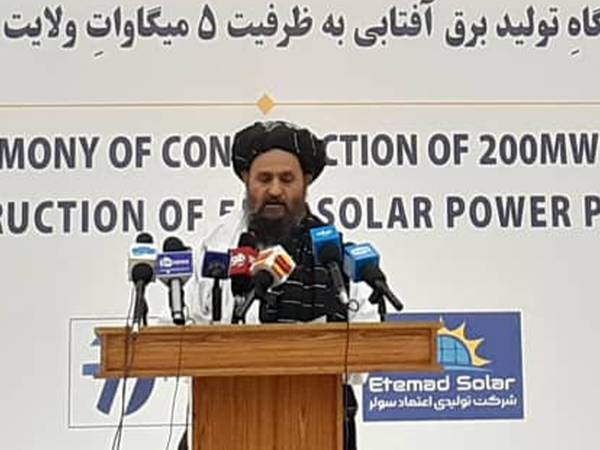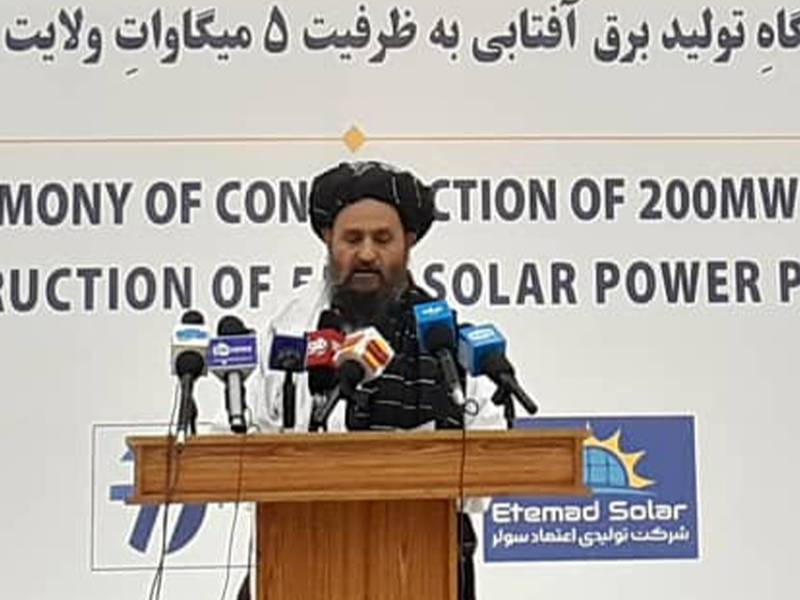The Taliban inaugurated two major renewable energy projects in Herat province on Saturday: a 43.2-megawatt wind power plant and a 5-megawatt solar energy facility.
According to Da Afghanistan Breshna Sherkat (DABS), the state-run power company, senior Taliban officials were joined by diplomats and representatives from 77 Turkish companies at the opening ceremony.
Speaking at the event, Mullah Abdul Ghani Baradar, Deputy Prime Minister for Economic Affairs, reiterated the Taliban’s commitment to promoting renewable energy as part of its efforts to protect the environment.
“These projects will provide clean and reliable electricity,” Baradar stated during the ceremony.
The Taliban’s push for renewable energy comes despite the group’s significant reliance on coal revenue in recent years. Reports suggest that unregulated and excessive extraction of thousands of tonnes of coal has caused considerable environmental degradation.
In November 2023, Bakhtar News Agency, controlled by the Taliban, reported that the group had registered 31 state-owned and 1,028 privately operated coal mines across northern provinces.
According to the report, approximately 1,000 tonnes of coal are extracted daily from these northern mines alone.
In December 2024, the Taliban’s Ministry of Industry and Commerce announced that roughly 654,000 tonnes of coal had been exported over an eight-month period to markets in Pakistan, China, Iran, India, and Türkiye, generating a total revenue of $605 million for the group.
The contrast between the Taliban’s coal-driven income and its promotion of green energy projects underscores the complex dynamics of the group’s economic and environmental policies.

